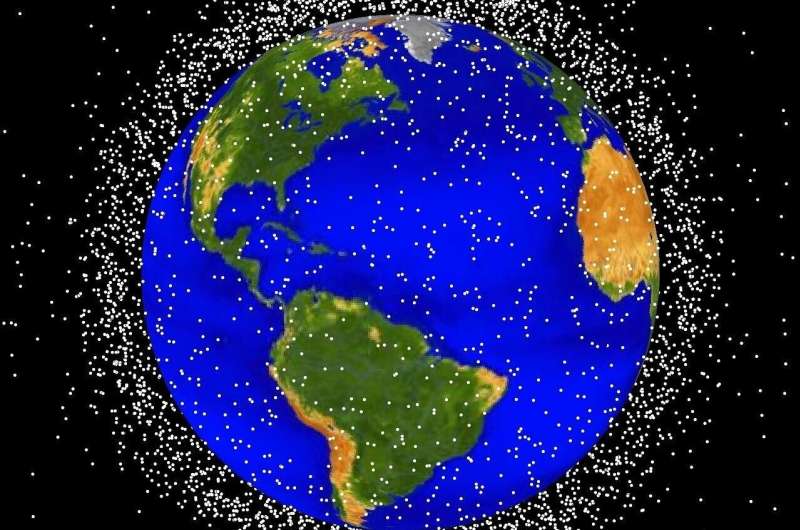Study shows need for ITU to tighten regulations for low orbit satellites as filing numbers grow

A small team of political scientists and astronomers at the University of British Columbia has conducted a study of the number of filings to the International Telecommunication Union (ITU) by entities wishing to send satellites into low orbit and has found the numbers growing so fast that soon there will not be room for new satellite deployments. In their paper is published in the journal Science.
Satellites designed for use in communications systems must be put into low Earth orbit—most of them are used for internet services. But those wishing to deploy them must file for orbital space with the ITU, a United Nations entity that has been tasked with regulating Earth orbital space.
In recent years, large entities such as Starlink have filed for multiple orbital space slots in large bunches; such slots are used by multiple small satellites that together comprise a constellation. These are needed because the satellites are deployed in a geosynchronous orbit, which means multiple satellites are needed to create networks over large geographical areas, such as countries.
Prior research has shown that as more satellites are launched into low orbit, the belt around the planet becomes more crowded—eventually, there will no longer be room for any new satellites. In response, many entities such as Starlink have begun overfiling—filing requests for satellites that have not even been built yet. And some, like Starlink, have attempted to skirt the system by making multiple filings from different countries.
In this new effort, the researchers analyzed the ITU database and found that filing requests are on a path that will choke the system. They found, for example, that there are currently filings in place that represent approximately 1 million new satellites, which includes plans for deploying 300 mega-constellations. They note that such figures represent a 115% increase over current low-orbit traffic. Such large numbers of satellites, they note, need to be better regulated to prevent collisions and to find the eventual cut-off point.
The researchers also found entities filing for more orbital slots than they currently need, as insurance against future needs. And they found many filings that are not likely to result in satellite deployments at all due to funding, political or other issues.
The research team suggests that participants at this year's ITU meeting (next month) begin looking at adding more regulations regarding filings to prevent entities from overfilling and to remove those that do not belong. They also note that rules could be enacted regarding how long a filing remains in the database, and perhaps instigating a system of bonds that can be redeemed when an entity removes a satellite from low orbit.
More information: Andrew Falle et al, One million (paper) satellites, Science (2023). DOI: 10.1126/science.adi4639
Journal information: Science
© 2023 Science X Network
No comments:
Post a Comment